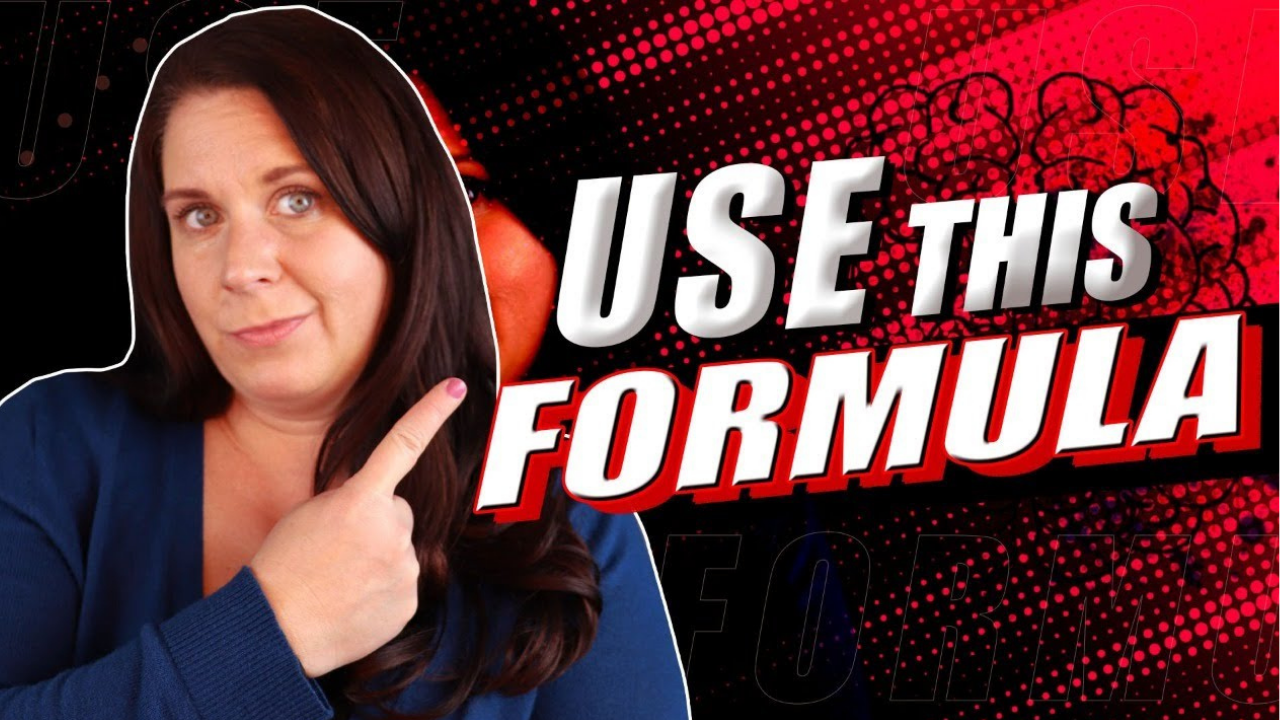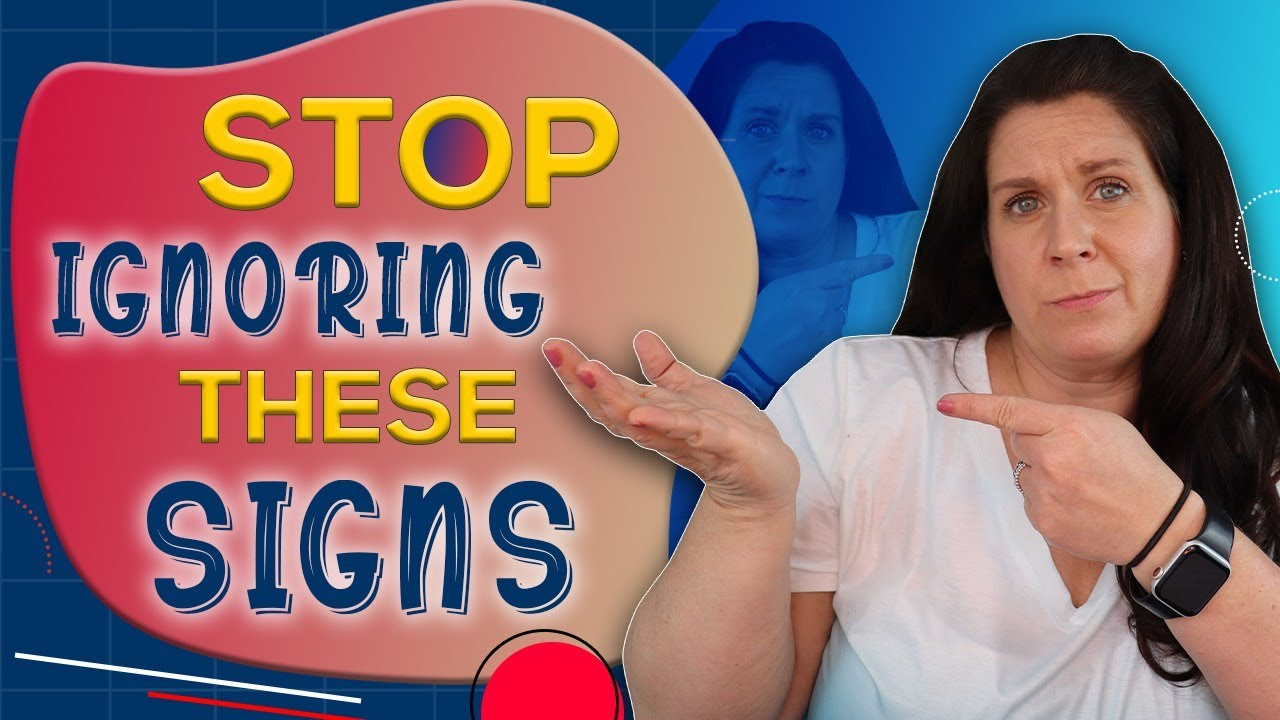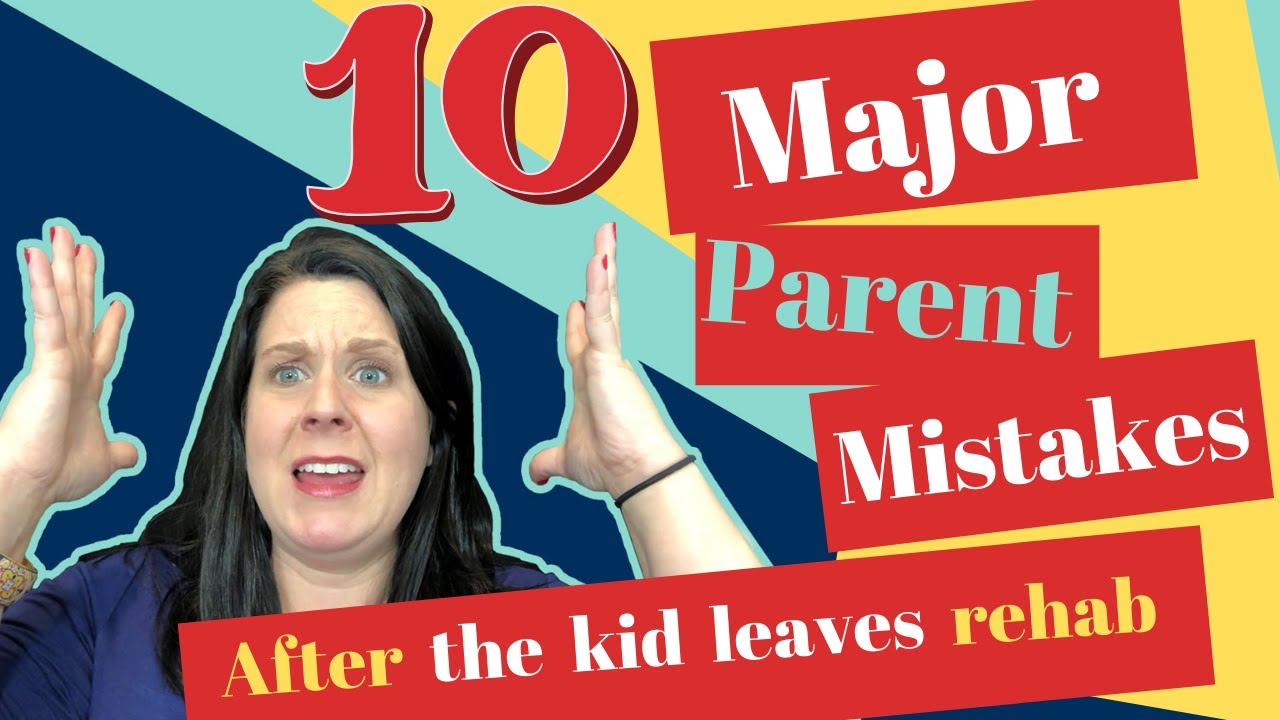The Best Way To Give Advice Without Offending 😨
It's always easy looking from the outside-in to know what
someone else should do. Take it from me, a counselor, this is what I do all-day
every day. You don't need to be a counselor to be good at this, promise!
If you're watching a loved one, a friend, family member struggle with something, it's hard not to just jump in there and want to either fix it or tell them how to fix it. That can be a landmine of a situation.
You've probably stepped in it before, haven't you? I know that I have! When you offer someone advice there's a particular way that you need to go about it, otherwise, you're going to come across as a know-it-all, judgmental, or critical. Even worse, you're
going to get Charlie Brown'd... "Wah wah wah". They're not going to listen to you anyway, so in this video, I’m going to talk to you about what formula to use to give someone a piece of advice in a way that's going to feel helpful and supportive instead of critical and judgmental.
If you take no other piece of informat...
The Worst Case Of Family Denial EVER! 😮🤐
This live video with Campbell Manning will have you shocked at the depth of denial some of these families had.
We always think about denial being an issue that happens to people with drug or alcohol addiction, but denial happens to family members too.
We, as family members we see the signs and symptoms, but it's easy to rationalize it away. When you look at the big picture, you'll easily be able to see that you're dealing with a bigger problem. Most families don't want the problem to be addiction and that's what will keep a lot of families in denial. This denial will allow the addiction to continue on. Watch the video to find out how to spot denial and what to do about it.
Amber Hollingsworth
Finding Your Addicted Loved Ones Hidden Stash
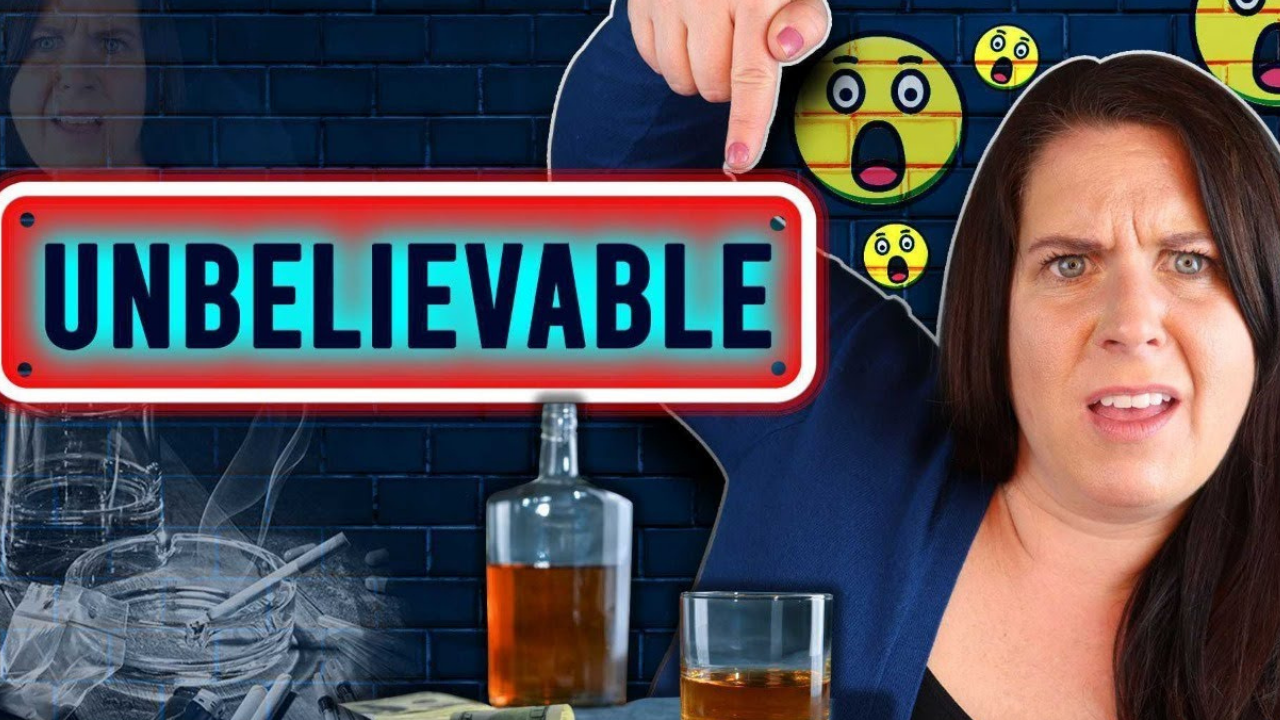
Do you confront your loved one? Do you throw it away? Do you just leave it where it is? What do you do when you find your addicted loved ones hidden stash.
In this video, I give you practical ways to deal with this without starting a power struggle between you and your loved one. I think what I'm going to tell you is going to surprise you.
Learn how to talk with your loved ones about their addiction without arguing. https://www.familyrecoveryacademy.online/motivational-interviewing-session
Amber Hollingsworth
Behind-the-Scenes Of Addiction Recovery
 We're going to be looking behind the scenes of addiction recovery. Family recovery coach Scott Nunnery will be sharing about his personal journey having two sons struggle with addiction, and also what he's learned since beginning to work in the field, trying to help others struggling with an addicted loved one.
We're going to be looking behind the scenes of addiction recovery. Family recovery coach Scott Nunnery will be sharing about his personal journey having two sons struggle with addiction, and also what he's learned since beginning to work in the field, trying to help others struggling with an addicted loved one.
Amber Hollingsworth
ADDITIONAL RESOURCES:
📆To make an appointment with Scott (or any of our recovery specialists): https://www.familyrecoveryacademy.online/consultations
🆓Download Scotts Do's and Dont's Checklist For Rebuilding Trust in Family Recovery: https://www.familyrecoveryacademy.online/scott-s-do-s-and-don-ts
Addictive Behavior (Dangerous Warning Signs You Should Never Ignore)
It's easy to dismiss aggressive behaviors when dealing with someone who is intoxicated or addicted. You tell yourself that your addicted loved one didn't mean what they said or convince yourself that they only behaved that way because they were intoxicated. But, there are some behaviors you should never ignore. Here are the top 7 warning signs of violent or abusive behavior.
1. Any kind of physical behavior(pushing, throwing, shoving)
2. Intimidating behavior (Yelling, hurtful words)
3. Blocking/Restraining (Making it hard for you to leave or walk away)
4. Threats made to you or to harm themselves(Always take these threats seriously)
5. Raging (You can see/feel their rage coming out) Use reflective listening in this case.
6. Any time someone has an angry episode while they're under the influence.
7. When someone is going through withdrawal.
If any of these situations arise please do not ignore these types of behavior. These indicate trouble and are major warning signs that th...
Have You Lost Yourself In Your Loved One's Addiction?
Does your loved one's addiction make you feel angry, sad, anxious, resentful, hopeless, desperate, and exhausted? Does it make you act impulsively and irrationally? Do you say and do things you later regret?
You realize on some level that you're not the same person you used to be, right?
It's all of those emotions from your loved one's addiction that leads to making impulsive and desperate decisions and that leads to GUILT! You're living in the survival part of your brain which causes you to make irrational decisions.
In this video, I go through the three-step process of how you got here and give you the three-step process to dig yourself out and reclaim yourself, your emotions, and your identity!
Amber Hollingsworth
Motivating Yourself (or a loved one) To Get Sober
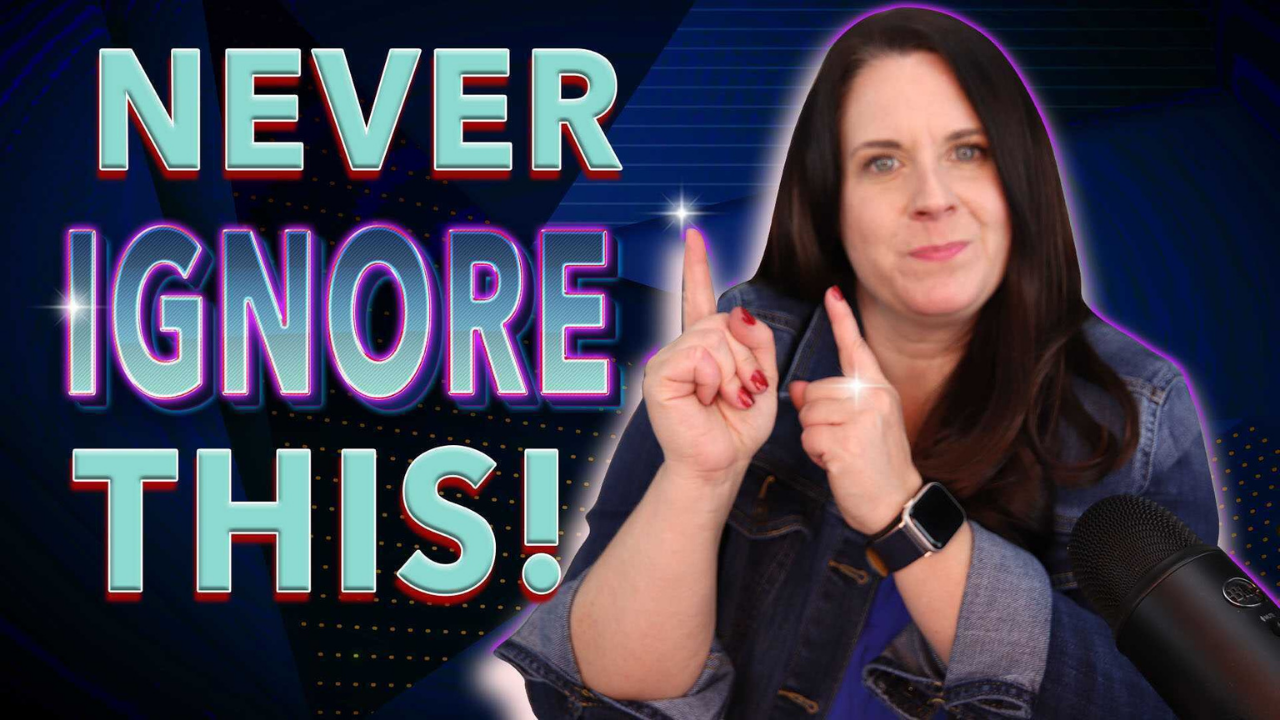 These are the three fundamental laws of human behavior that you should never ignore if you or your loved one is trying to get sober. What motivates us? What makes some float in negative bubbles and make others grow tall in positivity and how does that relate to someone struggling with addiction?
These are the three fundamental laws of human behavior that you should never ignore if you or your loved one is trying to get sober. What motivates us? What makes some float in negative bubbles and make others grow tall in positivity and how does that relate to someone struggling with addiction?
From the book, "THE LAWS OF HUMAN NATURE".
*Purchasing this book using the affiliate link will help support our YouTube channel.
Attitude determines reality- We react to what people put out toward us. If you believe that people never get better from addiction that's going to be the reality of your situation. When you have this attitude it's going to impact how you feel which is how you react to the world. You have to have the attitude or belief that your addicted love one can get better.
To look deeper into the other two laws, watch the full video!
Amber Hollingsworth
🧑FOR ANYONE WORKING TOWARD RECOVERY: 30 Day Jump Start: https://www.familyrecoveryacademy.online/30-d...
Surviving Your Loved Ones Addiction
Caring for someone with an addiction is a long scary journey. There are days when it seems all is lost. At times, Scott admits that he had days where he thought, "This is never going to get better." His two sons are now in recovery.
In this live interview with a family recovery coach, Scott Nunnery, we talk about finding hope even on the darkest of days.
Some things to consider if you're having a really hard day:
- Remember that you're not powerless
- Go to a family group/meeting
- Lower your expectations
- Educate yourself
- Turn your problem over to a higher power
- Don't forget to take care of yourself
Make an appointment with Scott to discuss your situation!
Watch this next:
After Rehab (What To Expect When Your Kid Leaves Addiction Treatment)
Your Questions Answered
 (click the picture above to watch the full video)
(click the picture above to watch the full video)
This week, we asked you to write in to our team to suggest a topic for our live video and you delivered!
In this video, I cover these questions and more:
- Co-parenting with an alcoholic
- Preventing relapse into addictive behaviors
- Dealing with a relapse, and getting a functional alcoholic out of denial
Ps- you can write in topic suggestions for next week's video! Send your email to [email protected], describe your situation, ask a question, and then look for it on next week's live. Every Thursday at 1 pm (EST) on our YouTube channel.
Amber Hollingsworth
Get Access To Our FREE Addiction Recovery Resources
How to Talk to Your Loved One About Their Addiction
People usually get defensive when confronted about their addiction, but you can use a few techniques to bypass their defensiveness.
I'm going to break this down into sections when it comes to talking to your loved one about their addiction, their denial, recovery, relapse, etc. What I'm going to share always needs to be top of mind when you're having a conversation about it so there's no conflict, arguments, or them putting a wall up and not speaking.
Contemplative Stage of Change
If your loved one is saying things like "I wish I could get better" or "I'm tired of feeling stuck" Contemplators know that they have a problem and begin to think about how they're going to solve it.
Caution: You have to take the queue from them first. If you come at them with a lot of information too fast, you're going to lose them and your credibility, which will only slow down the process. Your first goal is to help them see that's there's a problem.
Active Stage of Change
If so...
